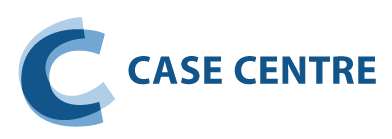


- Not connected
- |
- Login

MEPCO (Middle East Paper Company) et son dirigeant Fadi Baaklini : bâtir une PME transnationale au Moyen-Orient
MEPCO (Middle East Paper Company) and CEO Fadi Baaklini: Building a Transnational SME in the Middle East

- French,
- English
- Entrepreneuriat,
- PME transnationale,
- Moyen-Orient,
- Inde,
- Effectuation
- Entrepreneurship,
- Transnational SME,
- Middle East,
- India,
- Effectuation
Le cas rend compte du parcours du Libanais Fadi Baaklini et de l’entreprise MEPCO (Middle East Paper Company), que lui et un associé ont créée en 1997. Spécialisée dans la vente puis le négoce de produits de papeterie, MEPCO est active sur les marchés du Moyen-Orient, de l’Afrique du Nord et de l’Inde. Après avoir décrit les premières tentatives entrepreneuriales de Fadi Baaklini et son début de carrière dans l’industrie du bois puis du papier, le cas se centre sur MEPCO, qui devient rapidement une prospère PME de courtage en papeterie, avec l’ouverture d’un bureau de représentation en Tunisie et d’une filiale en Inde en 2005. En 2006, Fadi Baaklini rachète les parts de son associé et devient seul propriétaire de MEPCO. Entre 2006 et 2016, MEPCO continue son développement avec de nouveaux bureaux de représentation en Égypte et au Liban. En 2017, MEPCO emploie une trentaine de personnes et son chiffre d’affaires dépasse la centaine de millions de dollars américains. Renvoyant à plus tard ses projets de retraite, Fadi Baaklini décide de se lancer dans un nouveau partenariat avec une société canadienne spécialisée dans la fabrication de produits chimiques biodégradables, afin d’exporter en Inde des produits pour le traitement des eaux usées, mais aussi pour les secteurs de l’agriculture, des pâtes et papiers, et de la volaille. D’après lui, cette opportunité pourrait faire de MEPCO une multinationale générant plusieurs milliards de dollars.
The case describes the career path of Lebanese businessman Fadi Baaklini and traces the evolution of MEPCO (Middle East Paper Company), the enterprise he founded with a partner in 1997. MEPCO started out selling paper and later became a paper trading company, operating in markets in the Middle East, North Africa, and India. After presenting Fadi Baaklini’s initial experiences as an entrepreneur and his early career in the timber industry and then the paper industry, the case focuses on MEPCO’s rapid growth into a successful paper brokerage and prosperous SME. In 2005, the company opened a sales office in Tunisia and a subsidiary in India. In 2006, Fadi Baaklini bought the shares of his business partner, becoming the sole owner of MEPCO. From 2006 to 2016, MEPCO continued to expand, opening new sales offices in Egypt and Lebanon. In 2017, MEPCO employed some thirty people and had over US$100 million in sales. Fadi Baaklini has decided to put his retirement plans on hold in order to launch a new partnership with a Canadian firm specializing in biodegradable chemicals. His plan is to export these products to India for use in waste-water treatment, as well as in the agricultural, pulp and paper, and poultry industries. He sees in this opportunity the potential to turn MEPCO into a multinational company generating billions of dollars in sales.
- Professional, scientific and technical services
- Affaires internationales
- Entrepreneuriat
- Effectuation
- International business
- Entrepreneurship
- Effectuation
L’objectif pédagogique principal est d’analyser une démarche entrepreneuriale et de juger de ses forces et de ses limites tant pour l’entrepreneur-dirigeant que pour sa PME, le tout dans un contexte d’affaires (le Moyen-Orient) peu souvent discuté dans les cas. Les objectifs spécifiques sont :
- analyser une démarche entrepreneuriale en mobilisant les deux cadres de la planification (ou de la causation) et de l’effectuation;
- comprendre les enjeux organisationnels et stratégiques d’une PME transnationale et les relier aux forces et aux faiblesses de son propriétaire-dirigeant;
- (pour des étudiants européens ou nord-américains) mieux connaître la réalité des marchés des pays du Golfe.
The case’s main teaching objective is to analyze an entrepreneurial approach in order to determine its strengths and weaknesses both for the entrepreneur/CEO and SME in the business context of the Middle East, a region that has received little attention in existing case studies. The specific objectives are as follows:
- analyze an entrepreneurial approach based on two frameworks: planning (or causation) and effectuation;
- understand the organizational and strategic challenges facing a transnational SME and draw links with the strengths and weaknesses of the company’s owner and CEO;
- (for European and North American students) foster a better understanding of the reality of markets in the Gulf region.
Effectuation
Effectuation


